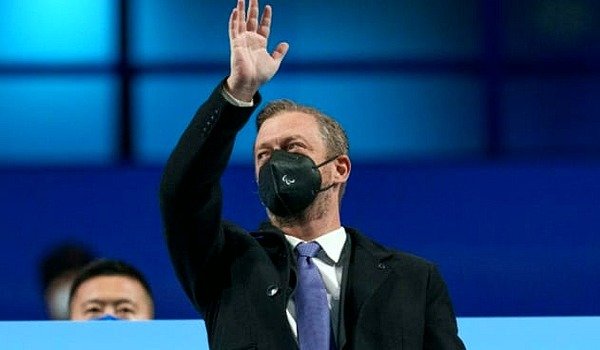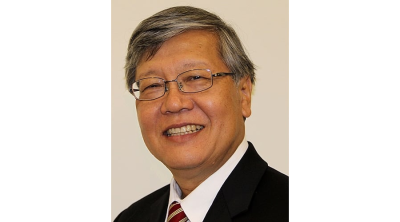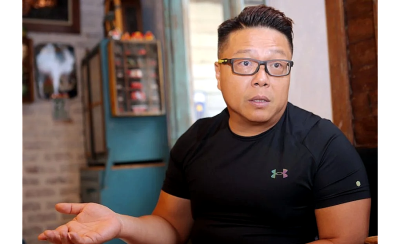ZHANGJIAKOU, China: The International Paralympic Committee president said Thursday he is still waiting for China’s state broadcaster to explain the apparent censorship of his forceful anti-war speech at the opening of the Beijing Winter Games, nearly a week on.
CCTV has not responded to the IPC’s questions or made any guarantees that it won’t happen again at this Sunday’s closing ceremony of the Beijing Paralympics.
“Not yet. We asked about it. We are still waiting for their position or explanation,” IPC president Andrew Parsons told AFP on Thursday.
“Let’s wait to hear what they say.”
Parsons used his Friday night platform to denounce war, telling the audience at the Chinese capital’s “Bird’s Nest” stadium: “The 21st Century is a time for dialogue and diplomacy, not war and hate.”
Parsons added he was “horrified” by current world events, while stopping short of specifically mentioning close Chinese partner Russia or its invasion of Ukraine.
But his condemnation was not translated into Chinese on air by state television broadcaster CCTV.
At one point, the broadcaster also appeared to lower the microphone volume of his speech.
Beijing has been treading a cautious diplomatic line on the conflict, refusing to condemn the actions of Moscow, with which it only last month touted a “no-limits” friendship.

In the staging area ahead of Friday’s opening ceremony Ukrainian athletes unveiled banners that said “stop war” and chanted “peace for Ukraine” as some shed tears, while receiving hugs from competitors from other nations.
The Ukraine team has shown immense resilience with an impressive six gold medals and 19 podium finishes in cross country skiing and biathlon events.
The Winter Paralympics opened nearly a week ago amid controversy over whether athletes from Russia and its ally Belarus should be allowed to compete.
The International Olympic Committee had urged sporting federations across the world to exclude athletes from Russia and Belarus after Moscow’s incursion into neighbouring Ukraine prompted widespread condemnation.
The IPC initially said allowing the athletes to compete as neutrals was the harshest punishment it could dish out under its rules, but with threats of boycotts from other competitors, it performed an 11th-hour reversal and kicked them out of the Games.
“I don’t think it was an embarrassing U-turn,” Parsons said, after the IPC initially said that it had been concerned the Russian and Belarusian teams could take legal action if banned. None has been forthcoming.
“We took a decision… our membership said, ‘Look this is not enough, w want you to reconsider your decision based on different elements.'”
Parsons added: “I don’t regret the first decision, I don’t regret the second decision.
“In the end we made the right decision.”
ADVERTISEMENT
ADVERTISEMENT








































